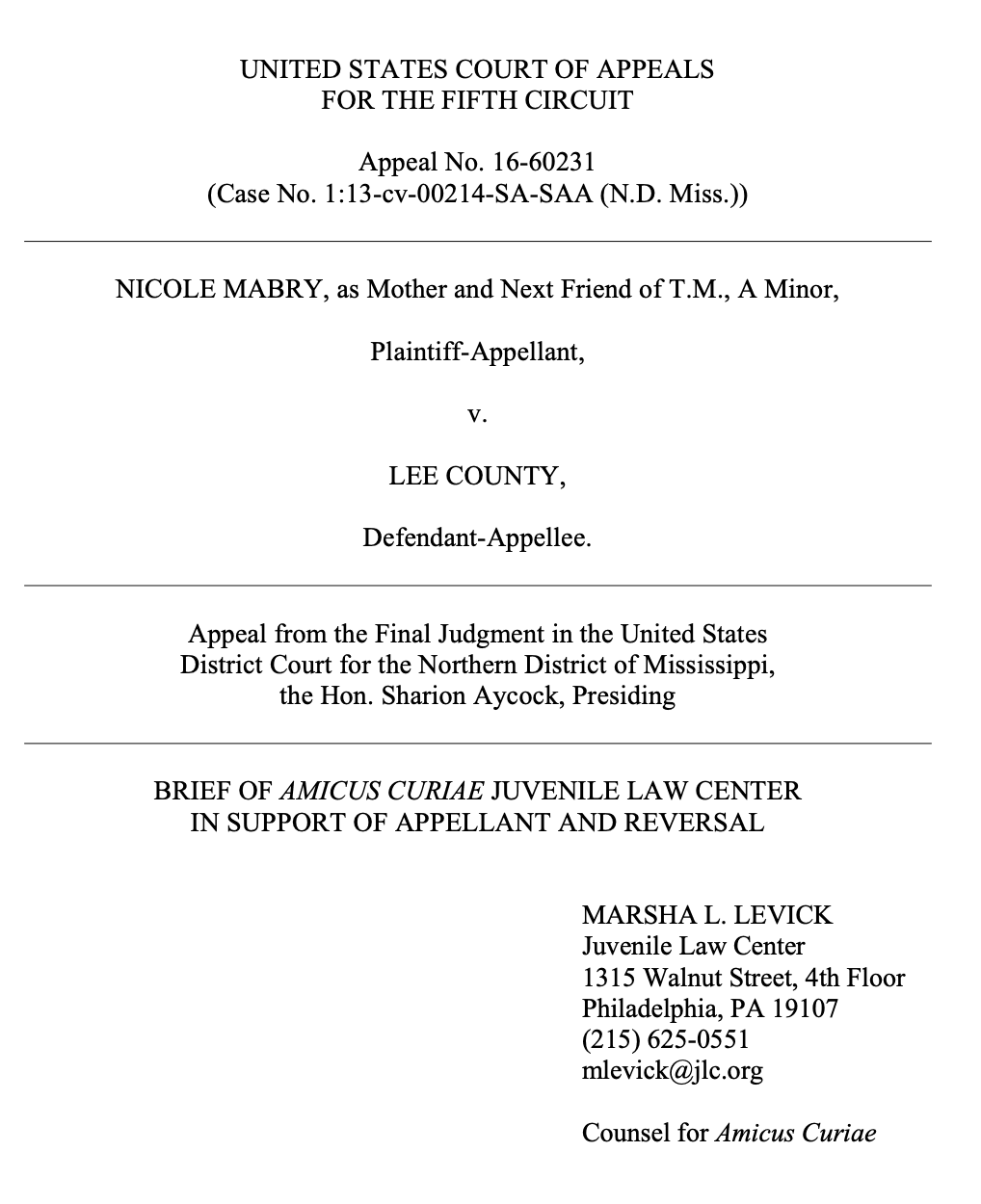
Summary of Argument
The district court in this case incorrectly held that the suspicionless body cavity search of a 12-year-old girl detained for a minor offense is a reasonable search under the Fourth Amendment. Although the Supreme Court approved such searches for adult detainees in Florence v. Board of Chosen Freeholders, 132 S. Ct. 1510 (2012), the Court has consistently recognized that children cannot be viewed simply as miniature adults, and that their developmental characteristics must be considered when assessing the scope and breadth of their constitutional rights. The district court failed to follow that well-established principle, and instead mechanically applied the Florence standard for strip searches of adults in jail to assess the reasonableness of strip searches of children in juvenile detention. This wholesale adoption of an adult standard to determine the Fourth Amendment rights of children fails to account for T.M.’s youthfulness, as required by Supreme Court precedent, and impermissibly equates juvenile detention with adult jail.
Rather than expanding the Florence holding to cover children, the district court should have simply engaged in the standard Fourth Amendment analysis, balancing the need for the search against the invasion of privacy that the search entails. Strip searches of children are an exceptional invasion of privacy that can cause lasting harm. This intrusion cannot be justified by the cited governmental interests. Although juvenile detention facilities have legitimate safety and security interests, the suspicionless body cavity search of a child goes far beyond the scope necessary to protect those interests, and thus violates the Fourth Amendment’s prohibition on unreasonable searches.